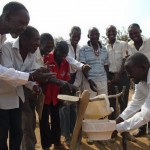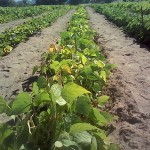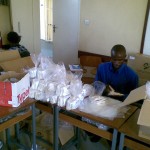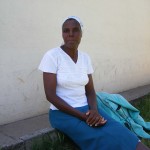
In western Zimbabwe’s Tsholotsho district, a dedicated and forward-thinking group of men is breaking down the traditional perceptions of gender roles. They are taking the lead on improving poor sanitation and hygiene practices to enhance the health of their communities, recognizing that these goals must be accomplished before food security challenges can be addressed.

For many years, Zimbabweans have been caught in a cycle of drought, poor soil fertility, weak harvests and suffering health. With a potentially record-breaking El Niño weather pattern forecasted for 2016, drought-vulnerable nations across the globe, including Zimbabwe, are bracing for another year of poor rains and dry soil.
“We never went hungry during the time we received assistance.” Such a simple statement from Bellah Mabhungo, 57, from Mabhungo village in Zimbabwe said it all. For her and others in the village, the hunger season had come a little earlier than expected in 2013.

Until recently, female condom distributors in Zimbabwe received female condoms in cartons of 1,000. Delivering the goods to individual clinics was a painstaking exercise because teams had to count out product in quantities ranging from 20 to 12,000 per delivery. To improve the situation, USAID is helped by its partner JSI to repackage each box of 1,000 into 50 smaller clear plastic bags containing 20 female condoms each.









Comment
Make a general inquiry or suggest an improvement.